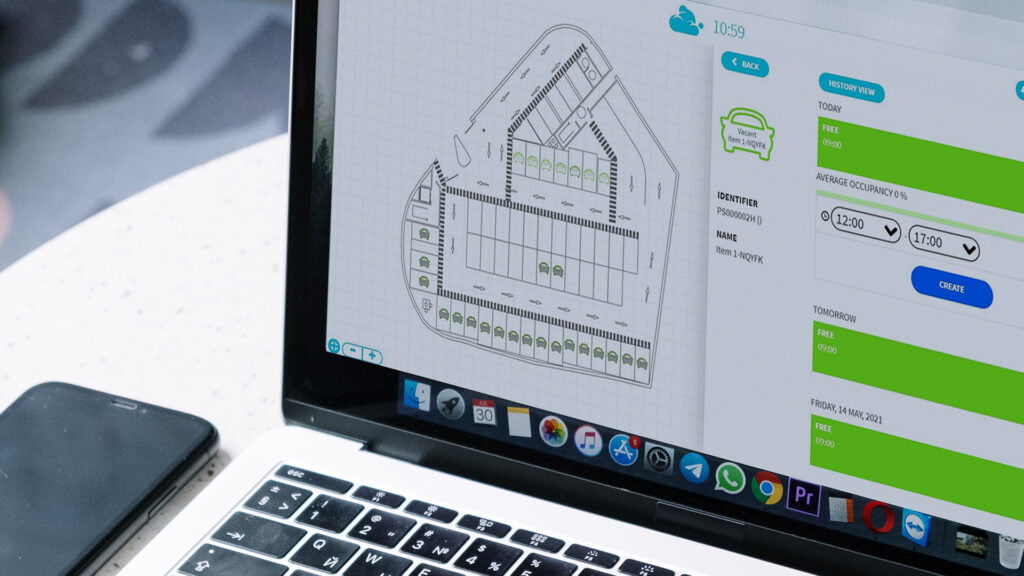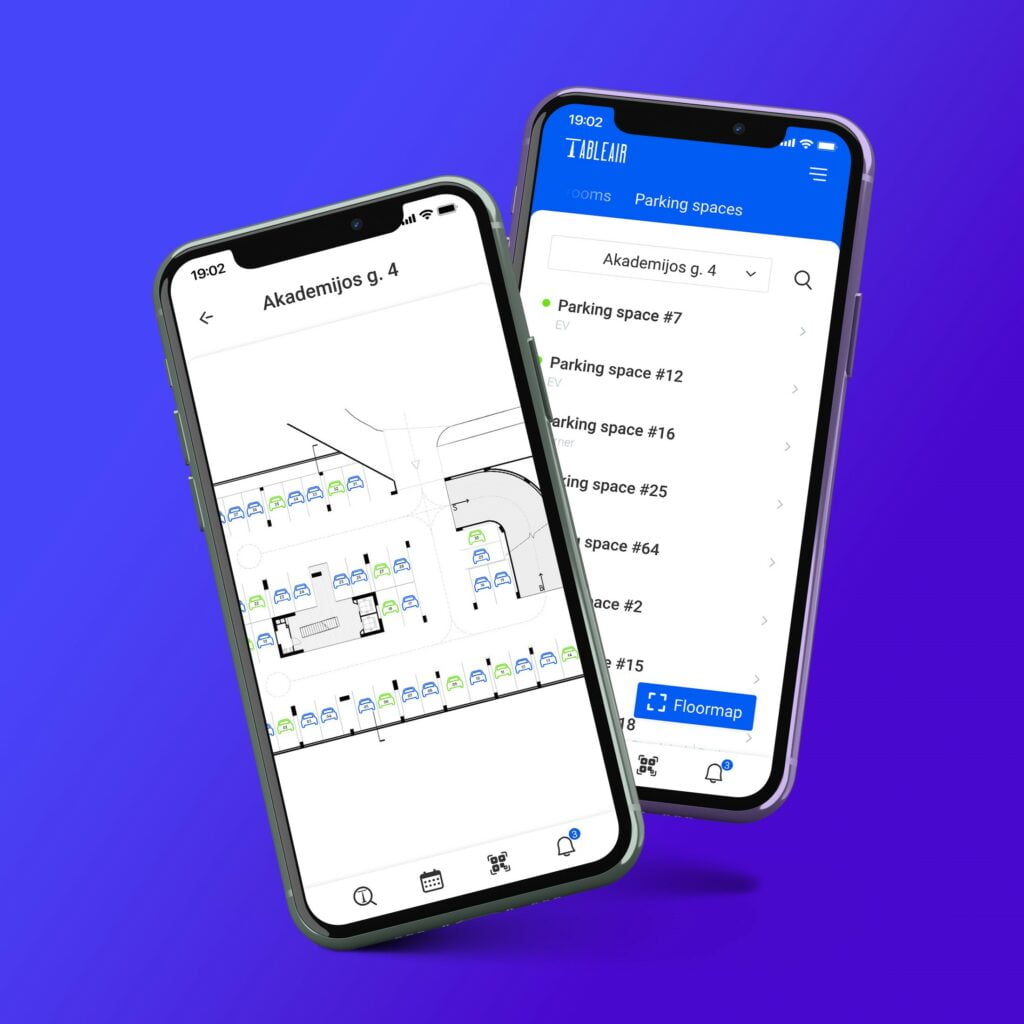
In the hustle and bustle of office life, parking management can often become a source of frustration for employees. Limited spaces, inefficient layouts, and the daily race to secure a spot can impact productivity and morale. However, with thoughtful planning and innovative strategies, office parking spaces can be optimised to create a smoother and more efficient experience for everyone. Explore various parking management tactics for maximising office parking spaces and creating a stress-free parking environment.
Smart parking systems revolutionise traditional parking management by integrating advanced sensors. These sensors, strategically placed throughout the parking facility, continuously monitor the occupancy status of individual parking spaces. These devices provide real-time data on space availability using technologies like ultrasonic sensors, infrared sensors, or computer vision. When a vehicle occupies or vacates a space, the system instantly updates, creating a dynamic parking lot map.
The benefits of smart sensors are twofold. Firstly, they empower employees with the ability to check parking space availability remotely, reducing the time spent circling the lot in search of an open spot. Secondly, this data-driven approach enables businesses to analyse parking patterns, identify peak hours, and optimise space allocation for improved efficiency.
Parking space reservation systems take the convenience of smart parking to the next level by allowing employees to reserve a parking spot in advance. This technology is often integrated into mobile apps or online platforms accessible to employees. Through a simple interface, individuals can check real-time availability and reserve a parking space for a specified duration.
This not only eliminates the uncertainty of finding a spot upon arrival but also provides a personalised and efficient parking experience. Parking reservation systems can be particularly beneficial during special events, ensuring employees have guaranteed parking during high-demand periods. Additionally, these systems contribute to a smoother traffic flow within the parking facility as reserved spaces are pre-allocated, minimising last-minute congestion.

Collaboration with nearby businesses or offices to establish shared parking agreements can be a game-changer. By coordinating schedules and optimising the usage of parking spaces during peak hours, businesses nearby can alleviate the strain on individual parking lots. This type of parking management not only maximises available spaces but also fosters a sense of community and cooperation among neighbouring establishments.
Consider implementing flexible work schedules to stagger employee arrival and departure times. By spreading out the influx of vehicles over a longer time frame, you can significantly reduce the parking congestion during peak hours. This type of parking management optimises parking and aligns with the growing trend of flexible work arrangements, enhancing overall employee satisfaction.
Encouraging employees to participate in carpool programs not only contributes to environmental sustainability but also helps in optimising parking spaces. Providing designated carpool parking spots close to the office entrance can incentivise employees to share rides, reducing the overall number of vehicles needing parking the whole week. Remote work lets workers manage their daily schedule more productively, which makes them happier and, in the end, increases the company’s overall outcome. Those who work with a hybrid work schedule evaluate their productivity at the highest level because the surroundings leave space for creativity and do not create tension.
Conducting regular parking audits is crucial for understanding the utilisation of parking spaces. By analysing data on peak hours, popular areas, and underutilised spaces, businesses can make informed decisions about potential adjustments to the parking layout. This proactive parking management ensures that the parking infrastructure evolves in tandem with the changing needs of the office.
Maximising vertical space becomes essential in urban areas where horizontal space is limited. Investing in multi-level parking structures or rooftop parking can significantly increase the overall capacity of the parking facility without requiring additional land.
Optimising office parking spaces is not just about efficient space utilisation; it’s about enhancing the overall experience for employees and visitors. By embracing technology, fostering collaboration, and implementing thoughtful policies, businesses can transform parking from a headache into a well-organised and stress-free aspect of the workday. The result? A more productive, satisfied, and motivated workforce.
In the pursuit of a seamless parking experience, businesses can leverage a parking management combination of innovative technologies, collaborative strategies, and employee-centric policies to create parking solutions that stand the test of time. The journey towards optimised office parking spaces is not just a practical necessity; it’s a commitment to improving the daily work experience for everyone involved.
For more information about office parking management system, click the button below
Office parking management refers to the strategies and technologies implemented to optimise parking space usage for employees and visitors. This includes everything from smart sensors and parking reservations to flexible work schedules and shared parking agreements, all aimed at reducing congestion and improving the overall parking experience.
Parking space management involves using smart parking systems to monitor space availability, parking reservation systems for pre-booking spots, and shared parking agreements with nearby businesses. Flexible work schedules reduce congestion by staggering arrivals, while carpool programs optimise space. Regular parking audits help identify inefficiencies, and vertical parking (multi-level or rooftop) maximises space in urban areas.
Smart parking systems use advanced sensors to monitor real-time parking space availability. By providing employees with live updates on available spots, smart parking reduces the time spent searching for parking, enhancing the overall efficiency of office parking and improving employee satisfaction.
Parking space reservation systems allow employees to reserve a parking spot in advance through mobile apps or online platforms. This ensures employees always have a spot when they arrive, especially during busy times, and reduces the stress of searching for parking. It also helps with better traffic flow and optimises space usage.
Flexible work schedules help stagger employee arrival and departure times, easing congestion during peak parking hours. By spreading out the number of vehicles arriving at different times, businesses can better manage parking resources and reduce stress for employees who rely on office parking.
Carpool programs reduce the number of vehicles parked at the office by encouraging employees to share rides. Designated carpool parking spots close to the office entrance can further incentivise this practice, optimising parking space and supporting sustainability efforts by lowering the number of cars in the lot.